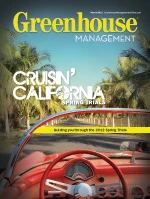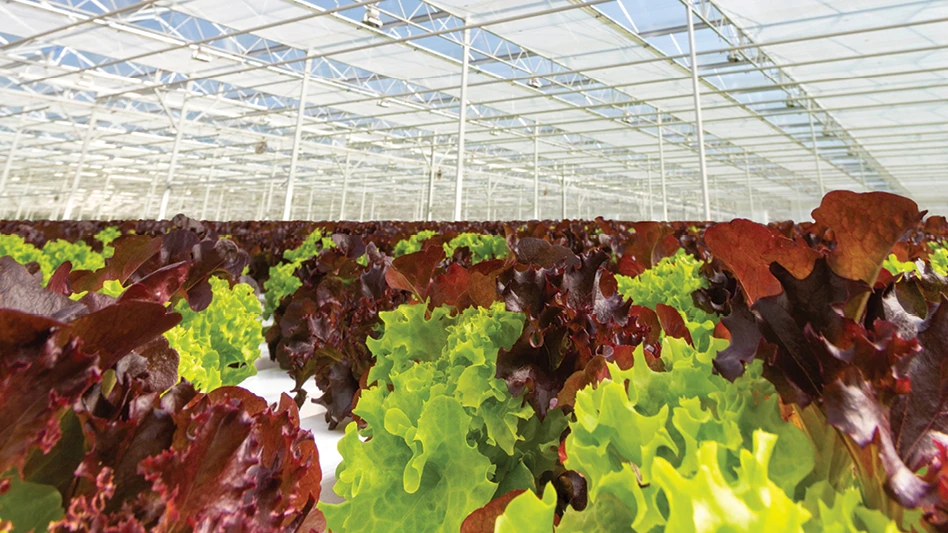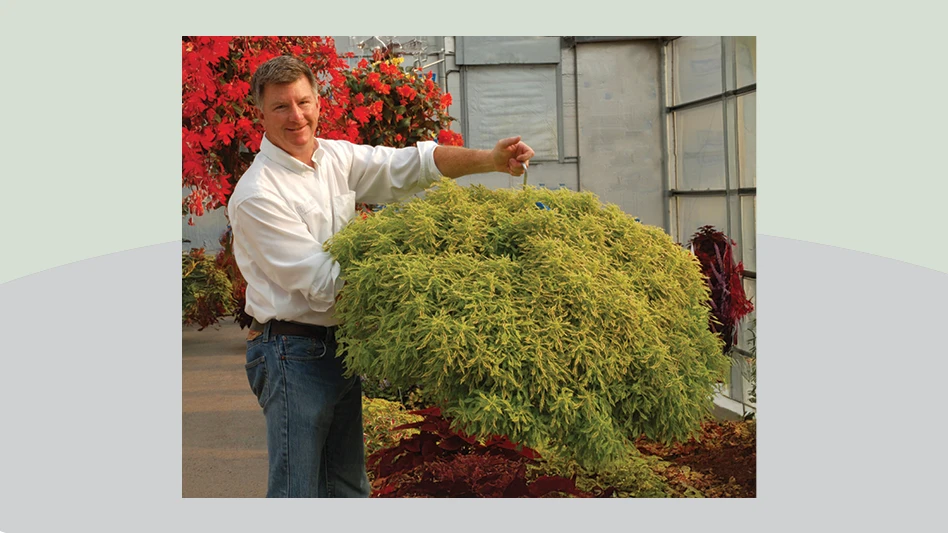 Doug Stevens opened the Tropical Plant Industry Exhibition in January by talking about the retail industry’s future.
Doug Stevens opened the Tropical Plant Industry Exhibition in January by talking about the retail industry’s future.
The retail industry futurist spoke not just about the retail market future also about how it will affect the plant industry.
“The more things change, the more they change,” he says.
It’s not just technology that’s changing but rather everything – tropicals, automobiles, houses, everything. In the middle of all this change, the biggest key is to create incomparable value for your customer.
“Being incomparable is what you need in the future in order to thrive,” he says.
This is important because the middle class is disappearing and there are new essentials that weren’t essentials in previous generations – such as daycare and cell phones. On top of that, the recent economic impact has nearly put the aspirational shopper – one that doesn’t have the money but will buy it anyway – into extinction.The top 5 percent of classes now equates for 35 percent of all spending on goods and services.
“The floor of that room is falling out, and you have to pick which side of the room you want to stand on,” he says.
But Stevens also says the challenge is in changing population demographics. In 1970, white, upperclass families accounted for 40.5 percent of the population and fell to 22 percent in 2011 as a result of a variety of factors: women now being the majority of college graduates and homeowners, acceptance of gay lifestyles, more people remaining single longer, multi-generational families and single-parent households. In addition to the population changes, life expectancy rose from 47 years in 1900 to 78 years last year, and by 2029, the last of the baby boomers will turn 65.
As a business, you have to adapt to these changing demographics. Stevens cited Walgreen’s as an example – baby boomers don’t want to get old, so the pharmacy chain is marketing itself as a place to be well and focusing on prevention.
Another key is determining if you’ll compete on customer fidelity or convenience. Fidelity refers to products that customers have an emotional connection with, and often have premium pricing – companies like Apple. Companies in the convenience realm have multiple locations, low prices and minimal emphasis on service – such as Dollar General. Then companies like Starbuck’s has caputred both, and businesses like Sears have failed in both.
Stevens says you have to create a defensible market position in a combination of five key areas: price, service, customer experience, product and accessibility.
“You need one you dominate in and one to differentiate you,” Stevens says. “Do that, and you’re safe.”
Lastly, constantly think about how to create new market space. Look at Cirque Du Soleil – it’s a creative twist on a traditional circus that is far more appealing to customers.
If you can create imcomparable products, develop a defensible market position and create new market space, you’ll be on your way to setting your operations apart in the industry.
“Nobody likes it,” Stevens says. “Nobody enjoys it, but it’s a fact of life and it’s exhilarating. It’s about seeing what other people miss.
“The only way to avoid disruption is to be the one causing it.”

Explore the March 2012 Issue
Check out more from this issue and find your next story to read.
Latest from Greenhouse Management
- Happy holidays from the GIE Media Horticulture Group!
- North Carolina Nursery & Landscape Association announces new executive vice president
- Plant Development Services, Inc. unveils plant varieties debuting in 2025
- Promo kit available to celebrate first National Wave Day on May 3
- Applications now open for American Floral Endowment graduate scholarships
- Endless Summer Hydrangeas celebrates 20 years with community plantings
- Invest in silver
- Garden Center magazine announces dates for 2025 Garden Center Conference & Expo





